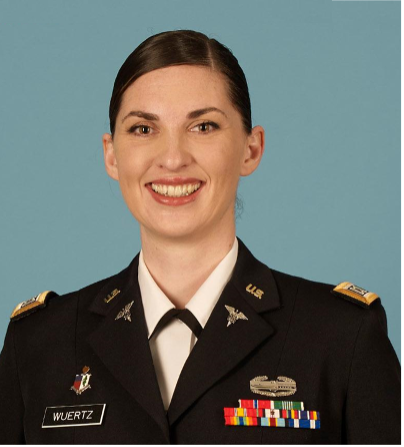 Title: Assist. Chief, Pre-clinical Research, Department of Vaccine Immunology
Title: Assist. Chief, Pre-clinical Research, Department of Vaccine Immunology
Question: What inspired you to pursue a career in science?
Answer: As an undergraduate student, I took an introductory microbiology course taught by Dr. Scott Minnich, who from the first class put into perspective how microbes, history, national security and health are co-related. With his encouragement, as an undergraduate student I joined the laboratory of Dr. Kurt Gustin, then at the University of Idaho and currently at the University of Arizona. Dr. Gustin taught me a wide variety of skill sets exploring the role of picornaviral proteases on nuclear pore complex degradation, through molecular virology, radioactive ex vivo protein expression and host cellular assessment. This early work set the stage for my interest in host-pathogen interactions, furthered by my Master’s research where I was looking into beta coronavirus entry mechanism into alveolar epithelial cells and subsequent generation of early innate immune responses. This experience, honed further by experience as a clinical microbiologist and through cultural engagements while deployed in Afghanistan led me to focus my PhD studies under Dr. Michael Gale Jr. and subsequent research in the pathobiology of neuropathic viruses, in the context of Global Health.
Q: What advice do you have for younger girls who want to pursue research careers?
A: Get involved! Don’t be afraid to get involved because of inexperience; everyone started without experience, no matter how senior they are in the field now. Find mentors who are willing to teach and give you opportunities for personal and professional growth. Dedication, determination and persistence are the ultimate factors that will dictate your ability to succeed. Be open to opportunities; exploring different opportunities will only enhance and refine the development of your future goals.

Q: What has been a highlight of your time working with MHRP?
A: Being a part of a global team with a joint mission to improve the health and wellness of humans on a global level. The degree of collaboration and engagement with partners across the globe is inspiring and an honor to be able to support.
Q: What kind of projects are you currently working on?
A: Right now, I am examining the role of cells isolated from the CSF in neuroinflammation during early acute HIV-1 infection. Additionally, in support of WRAIR’s Emerging Infectious Disease Branch, I am leading a COVID vaccine assessment in a small animal model, with the goal of developing a pan-COV vaccine.
Q: What is your background prior to joining MHRP?
A: At the University of Idaho I received my B.S. in Microbiology (M), a B.S. in Molecular Biology and Biochemistry (MBB), and a M.S. in the dual program, MMBB. During this time, I conducted laboratory research on host-pathogen relations of picornaviruses and coronaviruses. Simultaneous with my M.S. research, I joined the U.S. Army through the University of Idaho ROTC program, focused on lessons in leadership and security risks globally.
Upon graduation, I commissioned in the Medical Service Corps and moved to Germany to work at the military hospital Landstuhl Regional Medical Center in the Infectious Disease clinical laboratory. As the Deputy Officer in Charge of Infectious Diseases, I oversaw clinical testing of specimens from across Europe, the Middle East and Africa, as well as logistical and regulatory compliance. These lessons were essential in supporting epidemic outbreak reporting and diagnostic responses, including the Escherichia coli O104:H4 outbreak in Germany, as well as the MERS and later Ebola outbreaks that occurred between 2011-2014. Additionally, during this time, I deployed to Afghanistan as a Cultural Support Team Leader in support of Special Operations Command. During this time, I became distinctly aware of the integral relationship between Global Health and security, such that negative impacts of one degraded the other as well.
With that, through the Army’s Long Term Health and Education I conducted my PhD studies in Pathobiology, within the University of Washington Department of Global Health. Here I furthered my interest in studying neurotropic viruses examining flaviviruses, within the host-pathogen context. I was able to continue this work in the Viral Disease Branch at WRAIR prior to joining MHRP, studying Japanese Encephalitis virus distribution and ecology in the Republic of Korea. At the start of the COVID pandemic, I transitioned to support the Diagnostic and Countermeasures Branch leveraging prior clinical experience to facilitate development and establishment of diagnostic efforts. Currently, I am working within MHRP to determine the role of cellular inflammation in the CNS during early acute HIV-1 infection.
